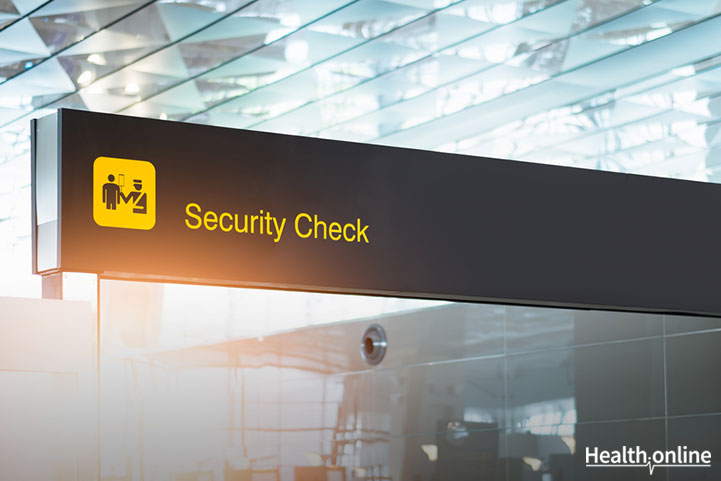
Are Airport Full Body Scanners Safe?
Travelling via aeroplanes is a part of life. Unfortunately, what is also a part of life are the security concerns associated with air travel. Airport authorities employ a plethora of safety gadgets to check passengers and thus protect the aircraft, full-body scanners being one of them.
Recommended Read: Carry-On-Meals That Are Perfect For a Flight
In an era where terrorist attacks and hijackings are a legitimate concern, full body scanners are considered indispensable when it comes to ensuring the safety of the aircraft. However, there are concerns that these scanners are not safe for the passengers who go through them. It is believed by some that full-body scanners emit harmful radiation, and that continuous exposure to this radiation can cause damage to the human body in the long term. This is the reason why some passengers have even refused to get themselves body-scanned, fearing that the radiation will cause substantial damage to their bodies
In this context, there is a need to understand how airport full-body scanners work and examine the safety concerns associated with them.
There are predominantly two types of scanners. One is the millimeter-wave scanner, that uses radio waves and does not emit any radiation. The other is the backscatter x-ray scanner, that uses ionizing radiation in extremely low-dose x-rays.
The fears arise from the ionizing radiation emitted by the latter kind of scanner, that is believed to damage DNA and cause cancer. Studies have been conducted, however, which debunk these claims of danger. For instance, researchers at the University of California have demonstrated that a full-body scanner that employs a backscatter x-ray scanner, exposes the human body to 0.1 microSievert of radiation. This is 24,000 times less than the 2.4 millisieverts received annually from natural background radiation.
Another comparison suggests that radiation exposure from 50 scans by a backscatter x-ray scanner would be roughly equal to 1000 chest x-rays and 200,000 instances of CT scan of abdomen and pelvis. The British Institute of Radiology and the Royal College of Radiologists report that the radiation dose from airport scanners are 100,000 times lower than an annual dose of natural radiation.
The aforementioned studies would suggest that the risk of cancer, with this minuscule radiation, is unfounded and trivial. Even a frequent flyer does not much to worry about. The Transportation Security Administration of the United States claims that full-body scanners are as safe as the erstwhile metal detectors.
Nevertheless, the claims that airport scanners release potentially dangerous levels of radiation persist. Researchers at Columbia University have suggested removing the head and neck from the scanning process in order to reduce susceptibility to cancer. Recommendations have been made to change the scanning techniques, although the risk quotient is low. Reports have also suggested that passengers are exposed to the electromagnetic field rather than ionizing radiations. It has even been said that the threat from airport scanners is non-existent, compared to the threat from cosmic radiation that the human body is likely to be exposed to when flying high.
Nonetheless, experts have suggested tips to remove any traces of radiation from the body. Consuming a detoxifying juice, taking a bath with sea salt or soda, taking an infrared sauna, and spacing out travel on flights as much as possible – these are some of the steps you can take if you want to be extra-careful.
Recommended Read: How To Protect Yourself From Airplane Germs
Avoiding exposure to radiation is virtually impossible, given that it always exists in the background naturally to some extent. When it comes to airport full-body scanners, it is necessary for both the authorities, as well as passengers themselves, to take all the steps required to minimize exposure to radiation and, when exposure cannot be avoided, to minimize the risk of any adverse impact arising from such exposure
Keep yourself updated with the latest on Travel Health . Like us on Facebook and follow us on Twitter for more on Health , Diet & Nutrition and Fitness . Also, check out our Health Tools and try out our health-related Quizzes .




